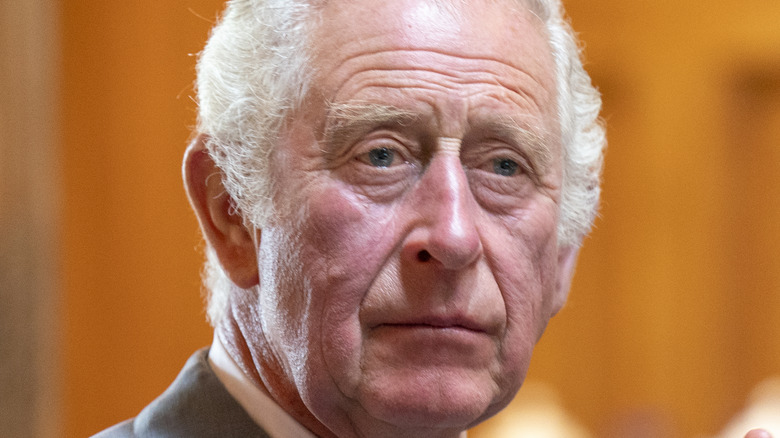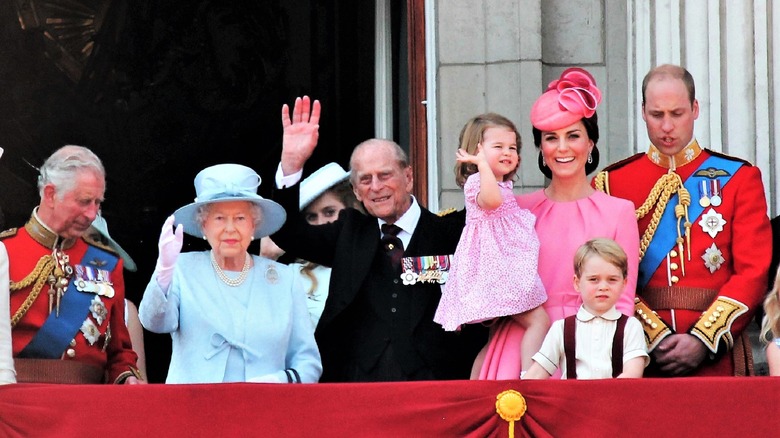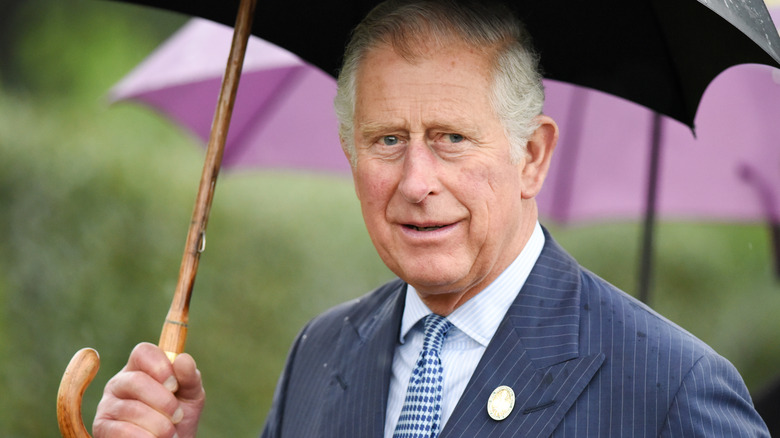Here's How King Charles III Is Expected To Change The Monarchy
England's Queen Elizabeth II passed away peacefully September 8, 2022 at the age of 96. She was surrounded by her family (via BBC). King Charles III, formerly the Prince of Wales, automatically assumed the role of monarch at the age of 73, becoming England's first king in 70 years. As the eldest son of the queen, Charles was named heir in 1952 at just 3 years old, making him the longest-serving heir apparent, according to Time. As the public reacts to the heartbreaking death of Queen Elizabeth, Charles III prepares for his coronation, set to take place after the official mourning period comes to a close (via The New York Post). As noted by Time, Queen Elizabeth's official coronation did not take place until 16 months after the death of her father.
King Charles III commented on his mother's legacy in an emotional statement following her death. "We mourn profoundly the passing of a cherished Sovereign and a much-loved Mother," read his official statement on The Royal Family's Twitter. "I know her loss will be deeply felt throughout the country, the Realms and the Commonwealth, and by countless people around the world." Though everything that will happen when the former Prince Charles becomes king is still unofficial, he is expected to drastically change key features of the monarchy.
King Charles III is expected to reframe the role of the royal family
The recently-appointed king will make several changes to the monarchy, most notably reframing the role of the royal family, per Insider. The predicted "slimmed down" monarchy could mean a condensed team of working royals, limited patronages, and smaller living quarters. According to the Daily Mail, the King has recognized the financial strain that a large monarchy imposes on the public (and Buckingham Palace's centuries-old balcony). Angela Levin, esteemed royal biographer, appeared on TalkRadio in 2021, explaining that Charles has hoped to slim down the number of working royals "for a very long time," per The Daily Mail.
It's still unclear what members of the Royal Family will remain in service — The Queen Consort, The Duke and Duchess of Cornwall and Cambridge, and Princess Anne are currently active members, according to Express. While other branches of the family may continue to represent the crown in a limited capacity, royal commentator Kinsey Schofield predicts that "Charles will try to draw attention to himself, Camilla, and the Cambridge family as the future of the monarchy," per Insider. Whatever the case, a smaller monarchy will drastically impact the number of royal public engagements. Charles III also has plans to grant the public increased access to the official London residence and turn the queen's beloved Balmoral into a memorial museum (via Daily Mail).
King Charles III will tackle climate change
The former Prince of Wales is the founder of The Prince's Trust, a charitable organization partially-dedicated to environmental sustainability. In the coming years, The King is expected to actively address climate change (via The Daily Mail). In 2021, he spoke at the COP26 Climate Summit in Glasgow, imploring world leaders to "find practical ways of overcoming differences" in order to "rescue this precious planet," per Rev.com.
As reported by Reuters, King Charles commented on his history of environmental activism in a 2021 TV interview, saying "Why do you think I've done all this for all these years? Because I minded about, and always have done, the next generation." According to Vox, the former Prince of Wales will use the monarchy's "soft power" and global connections to advocate for sustainability. As explained by historian Ed Owens, "He's very much trying to create a new global platform for the British monarchy." Though the King has been a divisive figure in the past – we finally know why the former Prince Charles and Princess Diana Divorced – these present uncertainties could lead to long-term, historical change.


